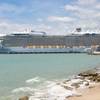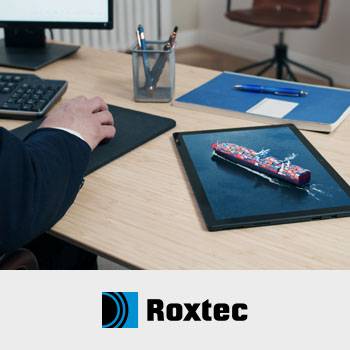Yhe U.S. House of Representatives adopted the Coast Guard and Maritime Transportation Act of 2003 (H.R. 2443). The measure was approved by the Transportation Committee on June 12, but only now reached the floor. It includes a manager’s amendment, offered by Representative LoBiondo (R-NJ), chair of the Subcommittee on Coast Guard and Maritime Transportation. A brief summary of the measure, as adopted, follows, emphasizing the changes from the earlier version.
The authorized funding of the Coast Guard was increased to $4.865 billion for operation and maintenance and $1.147 billion for acquisition, construction, rebuilding, and improvement. This is $460 million more than the President requested. Of this amount, $70 million is for conducting the mandated U.S. port security plan approvals and $202 million is to keep the Deepwater Capital Acquisition Program on track. It should be remembered that a measure such as this just allows (authorizes) the agency to spend money that it has. Only an appropriation bill actually provides monies to a federal agency. Various members of Congress continually complaint that the Coast Guard is under-funded for the many missions assigned.
The law indemnifying personnel for damages resulting from use of disabling fire was amended to repeal the requirement for firing of a warning shot when it would be unreasonably dangerous to do so. Also, the indemnification provision was extended to include all military aircraft within its protection.
After informing the Secretary, the Commandant was authorized to make such recommendations to Congress relating to the Coast Guard as the Commandant considers appropriate.
Only classification societies that have been reviewed and approved by the Secretary would be authorized to operate in the interstate or foreign commerce of the United States. The Secretary could only approve a classification society if the Secretary determines that vessels surveyed by the society have an adequate safety record and that the society has an adequate program to develop safety standards for surveyed vessels; makes the safety records available to the Secretary in an electronic format; provides the vessel’s safety records to any other classification society that requests those records for the purpose of conducting a survey; and requests a vessel’s safety record from any other classification society that has previously surveyed the vessel. This provision would come into effect on January 1, 2005.
The Maritime Transportation Security Act (MTSA) would be amended to provide that membership of area maritime security advisory committees are required to include representatives of the port industry, terminal operators, port labor organizations, and other users of the port area.
The MTSA would be amended to clarify that owners or operators of both domestic and foreign vessels have to prepare and submit detailed security plans to the Coast Guard. The Coast Guard is to review and approve such plans and vessels (both domestic and foreign) may not operate on U.S. waters without an approved plan.
Monies were specifically authorized for the maritime domain awareness program ($25 million) and the long range vessel tracking program ($12 million).
Effective October 1, 2004, the port security grant program would be transferred from the Secretary of Transportation to the Secretary of Homeland Security, acting through the Commandant of the Coast Guard. The definition of owner or operator for purposes of the Oil Pollution Act of 1990 (OPA 90) would be amended to exclude a person that is a lender and that holds indicia of ownership primarily to protect a security interest in a vessel or facility and does not actively participate in the operation of the vessel or facility. This so-called passive lender provision is similar to one currently found in the Comprehensive Environmental Response, Compensation and Liability Act (CERCLA). The measure now goes to the Senate for its action. The Senate version has been pending for months and it is unclear whether it will reach the floor for a vote before the upcoming recess.
Source: HK Law
Sponsored Content
LR - Fit for 55: Managing compliance and optimising operations

Use Roxtec seals, services and software

Subscribe for
Maritime Reporter E-News
Maritime Reporter E-News is the maritime industry's largest circulation and most authoritative ENews Service, delivered to your Email five times per week








